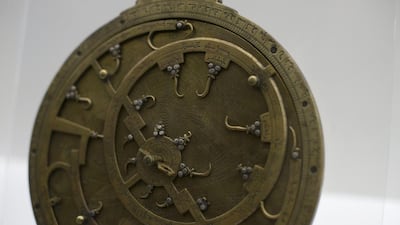Extremists have cried havoc and let slip the dogs of war. In the Middle East, Yemen’s Shia Houthis battle Sunnis, some so misguided they ally themselves with Al Qaeda. Israeli officers storm the Al Aqsa mosque compound in Jerusalem, while ISIL threatens ancient Christian communities in Iraq with extinction. Meanwhile, Europe has seen an alarming rise both in anti-Semitic attacks and in levels of Islamophobia. The prominent Egyptian novelist Alaa Al Aswany recently published a column warning of the perils of “travelling while Arab” in the West.
One can almost see the smiles of gleeful satisfaction on the faces of those who have long warned of the inevitability of a “clash of civilisations” – an inevitability that some, such as millenarian Christians in the US, actually desire, not just predict. We told you so, say those rubbing their hands, believing their views to be vindicated by the outbreaks of sectarian violence. Adherents of different religions cannot rub along together forever when their faiths are underpinned by such opposing moral and political systems.
Silent, or near silent, is the “still small voice of calm” that proposes the opposite: that we should think instead of the ties that bind, rather than divide, us. History provides no shortage of examples for both sides. Did not the Umayyads conquer Spain in the eighth century, and were not the Ottomans at the gates of Vienna in the 17th, thus threatening European Christendom with Muslim rule? And what were the Crusades, if not attempts to retake “the Holy Land” for Christians?
Accounts of such campaigns can be read both ways. The Siege, by Ismail Kadare, the novelist who was awarded the first Man Booker International Prize in 2005, is a case in point. Europeans with a Christian heritage are liable to read his book as the story of brave resistance by Albanian forces against Ottoman encroachment in the 15th century. Those with a Muslim background may well see it as a narrative of an indubitably superior civilisation trying to tame and bring their benefits to a nation of comparative barbarians.
Not well-known enough, are the times of peaceful and profitable coexistence and intermingling, such as in Umayyad Spain, Abbasid Baghdad and Mughal India, when Muslims, Hindus, Christians, Jews and others lived together and contributed to remarkable growths in scholarship.
These were people who were different, and whose difference was acknowledged, but was contained and accepted within a framework of cohabitation that allowed all to prosper. Even the man who coined the term “clash of civilisations”, the 98-year-old Princeton historian Bernard Lewis, acknowledges this.
Indeed, despite his having been adopted as a sort of intellectual godfather to the American neocons, Lewis’s own career as a scholar of Islam was steeped in just such a rich, multilingual polyculture. By his early 20s he had learnt Arabic, Aramaic, Hebrew, Turkish and Persian and in 1950 was one of the first non-Turks to be allowed into the Ottoman archives. “I was utterly delighted, it was like an Aladdin’s cave,” he told me when I interviewed him a few years ago.
It is true that those who fear difference can find plenty in the sacred texts of all three Abrahamic religions to curdle the blood, exhortations to do all sorts of unpleasant things to “unbelievers” and the like. It is on these that atheist fundamentalists such as the late Christopher Hitchens choose to concentrate, arguing that these represent the essence of religion and that to suggest otherwise is to attempt to put a warm, fuzzy gloss on intolerance. But there are also many verses that recognise the commonalities between the peoples of the book and which urge peace and friendship, such as this from the Quran: “Lo! We have created you from a male and a female, and made you nations and tribes that ye may know one another.”
We have a choice, in other words; and it is surely untrue to the underlying spirit of belief in God to prefer harshness over compassion. The better path is being trodden by the new pope, with his message of inclusivity, as it has been by Grand Ayatollah Ali Sistani, who has reportedly declared the fate of the Yazidis to be the responsibility of all in Iraq.
This is not to paper over differences. Those who say “we all believe in the same thing” may be well-intentioned, but they are not theologically correct, and no scholar of religion could possibly agree with them.
At the same time, however, it is important to remember what we have in common, for the lack of that knowledge only plays into the hands of those who wish to see division. Here I must strike a personal note: my close family includes Muslims, Christians and Jews, so I have a stake in wishing to see understanding between those religions. For that to be underpinned by genuine tolerance rather than indifference, however, it requires learning about each others’ beliefs.
Discussing a child’s names recently, though, we found some European friends were not even aware that “Musa” is in Arabic as “Moses” is in Hebrew or that Islam recognises the prophets of the Christians and the Jews. But why would they be? They had been taught nothing about other religions at school.
The current chaos comes not from any clash of civilisations – how could that word be remotely appropriate? – but from ignorance and what Bernard Lewis himself once described as “unholy terror”. Neither is there anything inevitable about it. A fatal lack of understanding between those of different creeds may, however, make it much more likely. We desperately need “to know one another”.
Sholto Byrnes is a Doha-based commentator and consultant


